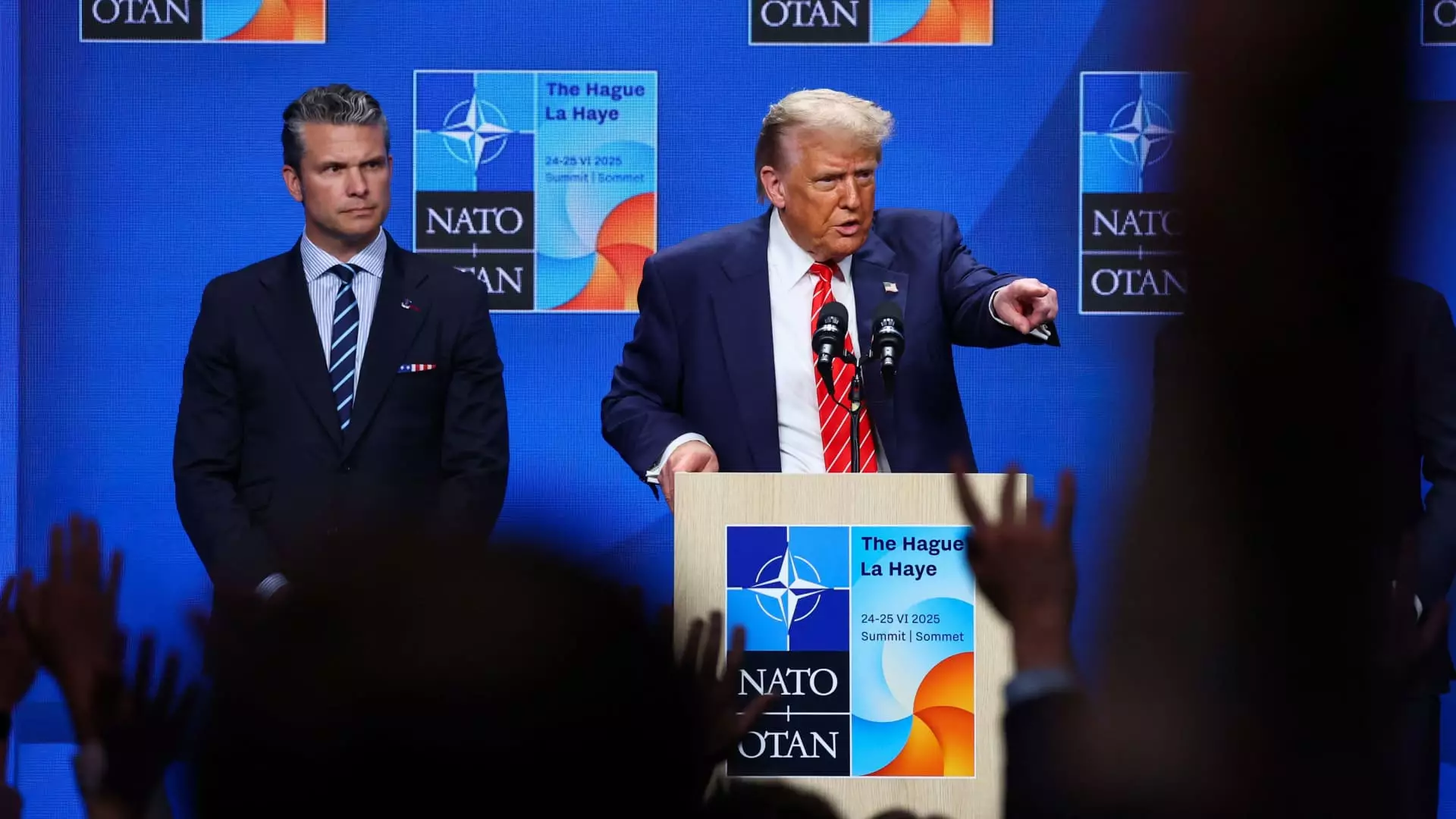In the volatile landscape of modern geopolitics, rhetoric and reality often clash, revealing a chasm that is difficult to bridge. President Donald Trump’s recent declaration that American airstrikes have “obliterated” Iran’s nuclear capabilities echoes this dissonance. With a loud and bombastic insistence, Trump has characterized the bombing of Iran’s nuclear installations as a resounding success, a narrative at odds with tangible intelligence reports surfacing that suggest otherwise. This dynamic prompts critical questions: Is it hubris or an unyielding commitment to a dubious narrative? The self-appointed warriors of American dominance seem more focused on projecting strength than engaging with the reality on the ground.
The Dependable Undercurrent of Denial
Examination of the initial assessments shed light on the repercussions of the strikes, suggesting that while damage was indeed inflicted, the assertion that Iran’s nuclear ambitions have been fully quashed lacks substance. According to a preliminary report, instead of a devastating setback measured in years, the airstrikes likely only delayed Iran’s nuclear program by a matter of months. This finding stands in stark contrast to the president’s fervent proclamations, which have garnered more attention than the critical perspectives offered by intelligence officials. Space is created for misinformation and hyperbolic claims to flourish, rooted in an apparent refusal to grapple with complexities, and yet, the ramifications of exaggerating success can alter global perceptions and, ultimately, policy.
Politicking on Uncertainty
In a rousing performance at a NATO summit, Trump took aim not only at Iran but also the intelligence community and news outlets that would dare challenge his self-aggrandizing narrative. The president dismissed a Defense Intelligence Agency report by claiming it was incomplete and poorly timed, an argument that underscores a troubling tendency: the disparagement of established intelligence in favor of a more palatable version of events. When pressed, he appears to embrace a posture of defiance against facts that do not serve his script. This selective engagement with intelligence can dangerously distort policy decisions and formative relationships with allies, evoking concerns about long-term strategies in the Middle East.
War Room Whispers and Diplomatic Fallout
The White House reaction to the leak of the intelligence report only deepens the intrigue surrounding the airstrikes. Press Secretary Karoline Leavitt’s vehement labeling of the report as “flat-out wrong” points to a broader culture of defensiveness within the Trump administration. When leaders resort to insult, calling out “anonymous, low-level losers,” they signal a profound frailty in governance. This approach not only undermines confidence domestically but sputters credibility internationally. The Pentagon’s initiation of a leak investigation further illustrates a governing philosophy that prioritizes shielding narratives over nurturing accountability or forthright communication.
The Role of ‘Fake News’ in the Information Warfare
As the domain of information warfare expands in today’s digital age, Trump’s denunciation of “fake news” serves not only as a defense mechanism but as a powerful tool to mobilize his support base against perceived adversaries—be it in the media, the intelligence community, or Congressional dissenters. This maneuver has unsettling implications for democratic discourse, fostering an environment where skepticism of critical institutions becomes mainstream while undermining the essential fabric of a well-informed populace. Trump’s assertions reflect a fear that disinvestment in factual integrity will lead to harmful consequences, marginalizing voices advocating for a transparent and nuanced view of national defense.
Unraveling the Narrative Thread
In reality, the complexities surrounding Iran’s nuclear ambitions merit a conversation grounded in evidence rather than bravado. As new intelligence emerges, the focus should pivot from inflated triumphs to measured assessments. Policymakers must adopt that approach, willing to navigate difficult realities whereby diplomatic initiatives may offer more sustainable outcomes than bombastic parliamentary speeches. While Trump and his allies continue to paint a picture of obliteration, it’s crucial for the public to recognize that nations do not simply fall with a single strike—resilience and adaptation define the contours of international relations, where claims of victory should be balanced with sober reflections on what is truly achieved.


Leave a Reply